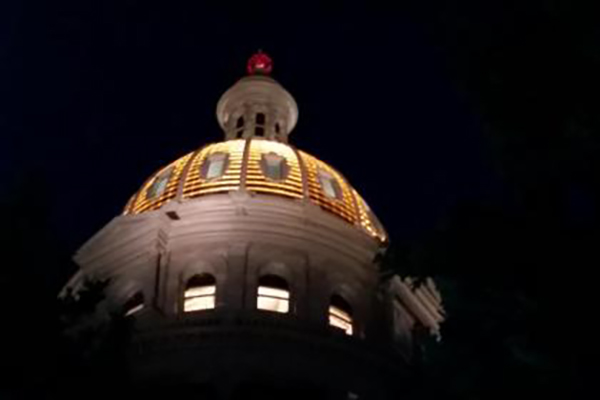The Colorado Senate will introduce the Long (budget) bill this week, making its changes and passing it on to the House next week. The budget measure, along with its related “orbital” bills that are required to balance the budget recommendations offered by the Joint Budget Committee, is later than usual thanks to the one-month delay in starting. Although the General Assembly convened on January 13, it adjourned temporarily after three days’ preliminary work to allow for COVID-19 cases to decline and vaccines become more widely available. When they resumed on February 16 the adjournment date was extended out to a potential mid-June deadline.
Facing a much brighter fiscal future than a year ago, the budget writers are recommending restoration of funds to K-12 education, shortening the wait list for services to the disabled community, and establishing new and upgraded environmental programs. Unfulfilled agenda items from the 2020 session have resurfaced with an enhanced Air Toxics bill (HB 21-1189) that redefines “covered facilities” by removing the threshold levels for emissions of hydrogen cyanide, hydrogen sulfide, and benzene to include categories for petroleum refineries, petroleum bulk stations and terminals, and “other aircraft and auxiliary equipment manufacturing” along with any other industry group that the Air Quality Control Commission may add by rulemaking. Additional specific toxic chemical compounds and thresholds may also be added by the AQCC through rulemakings with review and updating on a five-year schedule. Any covered facility must perform fence line monitoring, hold community meetings to discuss results and plans, and provide interpreters and childcare for attendees. Funding would come from the Air Quality Enterprise fund created in last year’s SB 20-204.
In much the same vein, SB 21-200 doubles down on GHG reductions by requiring the AQCC to set rules that result in reductions established by HB 19-1261 decreasing in a linear or more stringent path, while including specific net emission weight limits for various emission sectors. The bill adds a requirement for the AQCC to assess fees on GHG emissions and places those fees into the Air Quality Enterprise fund, with uses including the funding of an environmental justice ombudsperson and advisory committee to assist communities disproportionately impacted by pollution (this is an approach carried over from the 2020 session).
Plaintiffs’ attorneys are pushing SB 21-176 to rewrite employment law in Colorado to encourage litigation in cases of alleged discrimination and hostile environments in the workplace. In a hearing that went past midnight, proponents argued that a hostile workplace can be created with a single instance of a discriminatory or demeaning remark, and that actions that humiliate, distress, or undermine an individual’s personal sense of well-being or safety need not be severe or pervasive to be a cause of action. Committee members, while sympathetic to stories of outrageous workplace conduct, were skeptical of applying new standards to independent contractors and broadening the definition of “employee” to cover unpaid workers such as interns and domestic workers. The bill was laid over for more work on amendments to limit and clarify its scope.
With more than half of the legislative session still before us, the number of controversial bills continues amid rumors of a potential Special Session to determine priorities for anticipated federal funds and forthcoming spending guidelines. And despite the state seemingly awash in money, we have learned that various grant programs funded by the State share of severance tax (aquatic nuisance species, species conservation and the water supply reserve fund) will not receive funding until FY 2024-25 due to declining severance tax revenues. It may be a long, hot summer!







